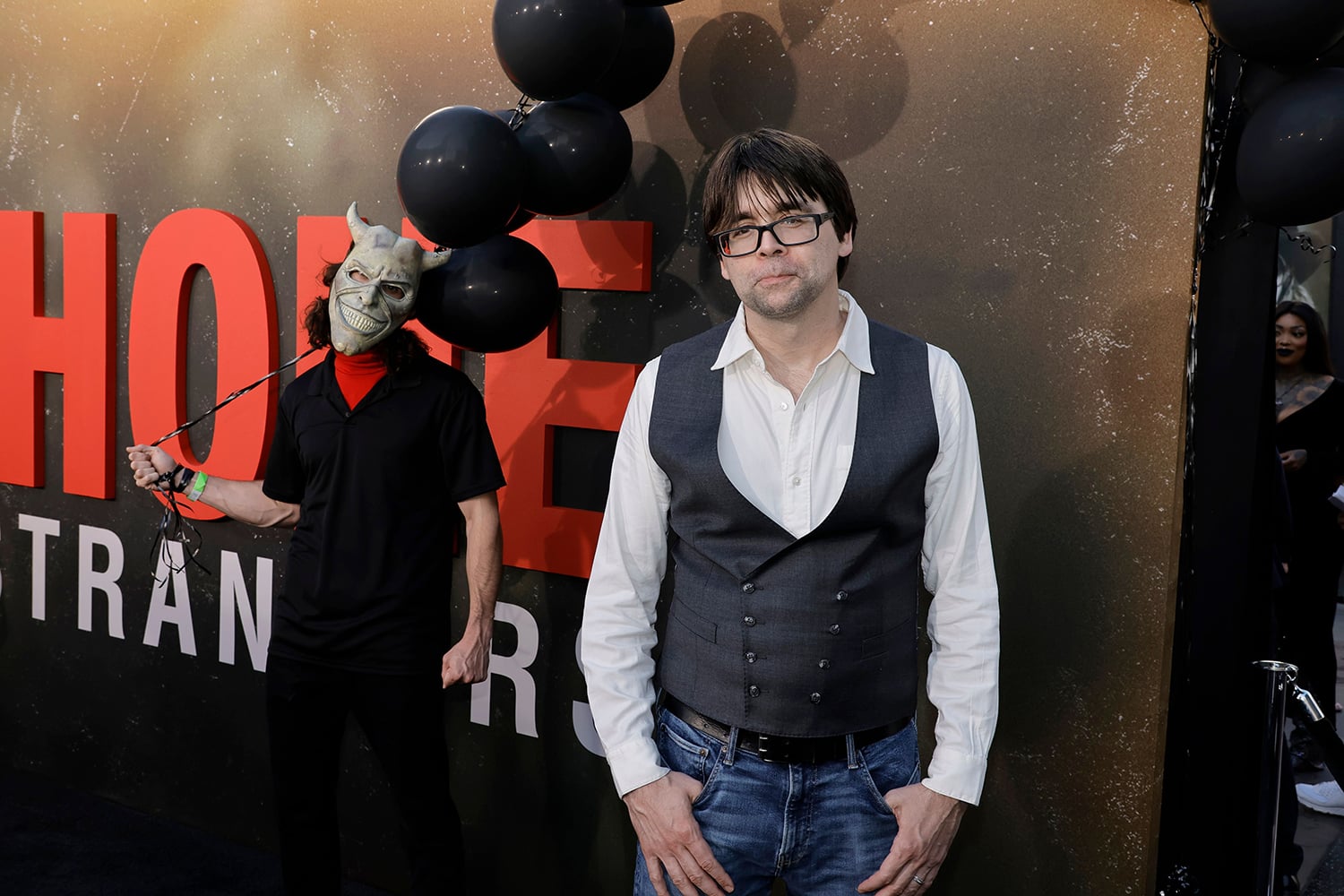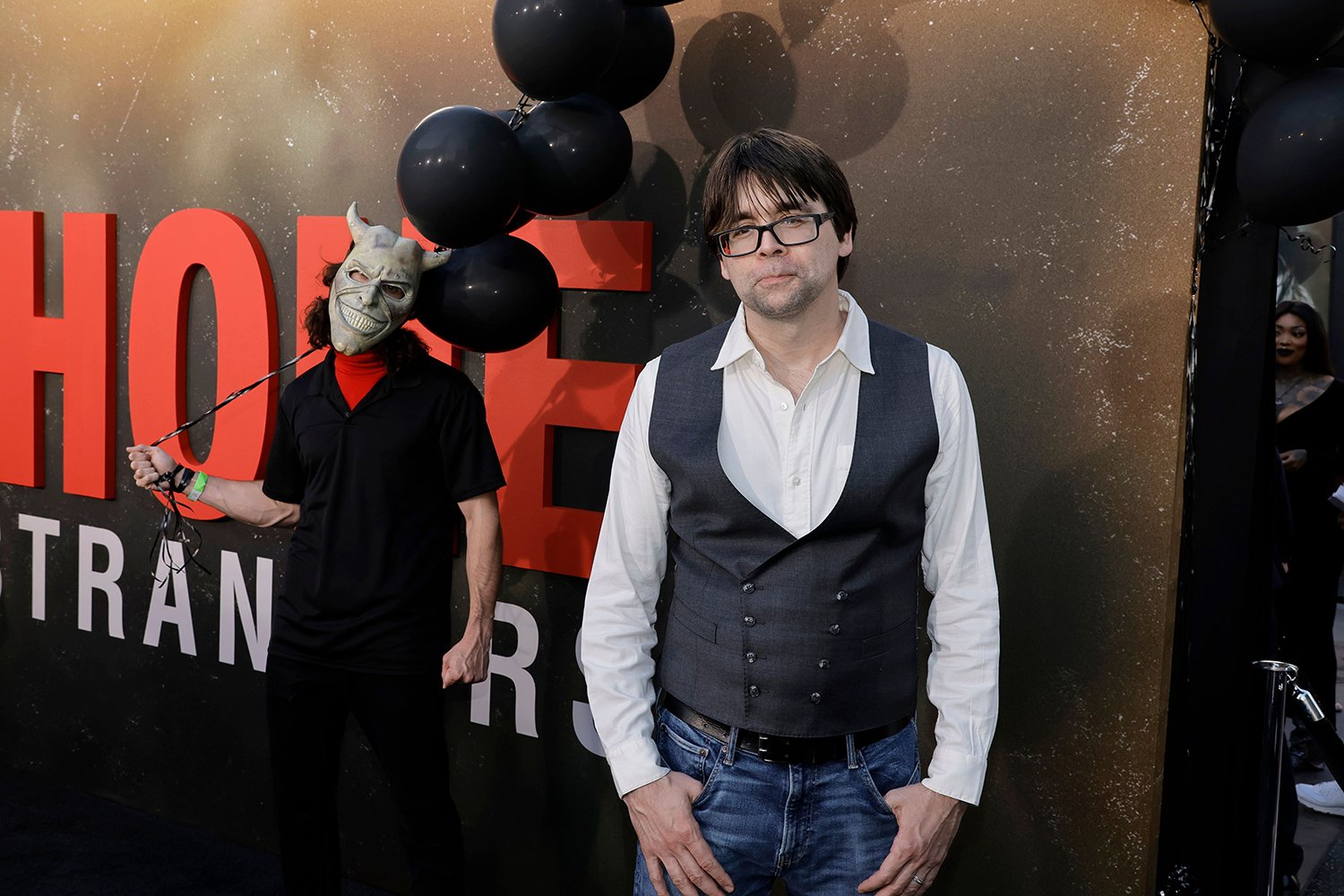
‘The Black Phone’ Changed 1 Small Detail from Joe Hill’s Short Story for a Big Reason
The Black Phone, a film adaptation of Joe Hill’s short horror story of the same name, finally hit theaters on June 24. Many fans of the original story have praised the Ethan Hawke starrer for its faithfulness to Hill’s writing. However, there’s one minor detail — in fact, it’s just one word — that was altered in the movie. Here’s what changed and why, according to Hill himself.

What is the story of ‘The Black Phone’?
The Black Phone tells the story of Finney Shaw (Mason Thames), a 13-year-old boy living in a small Denver neighborhood in 1978. A serial killer known as The Grabber (Hawke) has been kidnapping young boys, and Finney becomes his next target. The Grabber keeps Finney in a soundproof basement with a mattress and a disconnected black phone on the wall.
The killer says the phone doesn’t work, but Finney receives several eerie calls from The Grabber’s previous victims. It’s too late to save them, but they’re determined to help Finney survive by giving him escape tips and warnings about The Grabber’s methods.
Madeleine McGraw, Jeremy Davies, and James Ransone also star in The Black Phone. Scott Derrickson (Sinister, Doctor Strange) directed the film.
The key difference between Joe Hill’s ‘The Black Phone’ and the film
In Hill’s version of The Black Phone, The Grabber is described as “an overweight clown.” He tells Finney that he works as a clown part-time. Meanwhile, in the film, The Grabber is a magician.
The change might seem insignificant in the grand scheme. But it happened for a good reason, as Hill explained to Vanity Fair: The filmmakers wanted to avoid any overlap with Pennywise the Clown in It.
Hill, who happens to be the son of It author Stephen King, said he took inspiration from “notorious child killers” like John Wayne Gacy when writing The Black Phone. He was a fan of It, but the book and TV movie didn’t really influence his short story. Still, by the time The Black Phone became a film, It: Chapter One had already been established in theaters.
“I think the feeling amongst us was it would be a mistake to let the bad guy be a clown, that America has had its fill of evil clowns. There’s Pennywise, and there’s not room for another one. So we need to rethink,” Hill explained.
Hill’s next thought was a magician, and The Grabber’s new part-time job had a few different inspirations. The author added:
“I knew from reading about the history of magic and the famous Carter Beats the Devil routine in which the magician plays both the devil and himself, that there was this history of Lucifer being part of old-timey magic acts. So we talked about a devil mask, we talked about a magician. And I think we also thought it was interesting for Scott Derrickson to go from Doctor Strange, about the world’s most heroic sorcerer, to the flip side of that coin, to the sinister illusionist. That was the big change. And I think we made the right choice.”
‘The Black Phone’ also added details inspired by the director’s childhood experiences
Of course, The Black Phone had to add other details to the film for length’s sake. Hill’s short story would only make for about 45 minutes on the big screen. So, as Scott Derrickson told IGN, the director combined The Black Phone with his personal childhood experiences.
“I always thought it would be a great feature film, but I didn’t know how to expand it,” Derrickson explained. “And the answer came after a couple years of therapy, dealing with my own childhood and really the violence in my childhood, and some of the traumatic events in my childhood. … The idea came to me to combine my own experiences growing up in a blue-collar, violent neighborhood in North Denver in the late ’70s with The Black Phone.”
The Black Phone is now playing in theaters.


